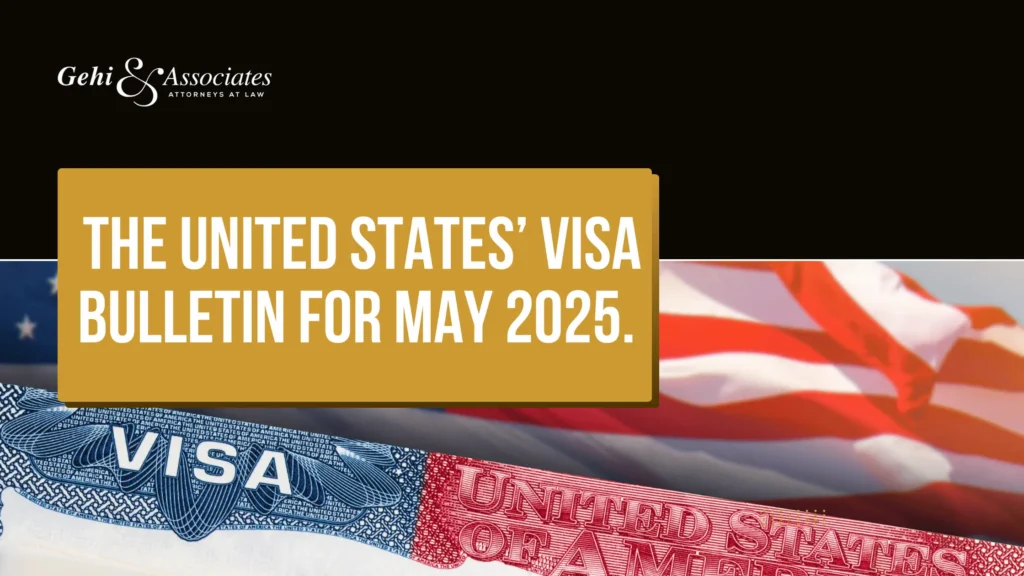Blog Categories
Recent Posts
Practices Areas

Any reason for denying or rejecting your fiancé visa can seem upsetting to your future marriage plans. The K-1 visa allows your fiancé to live with you in the United States after the wedding in compliance with immigration law. Sadly, thousands of fiancé visa applications are rejected or denied annually.
In many situations, knowing the typical grounds for a K-1 visa denial or rejection can help ensure that your application is approved and your partner can join you. Immigration laws vary, and many people have unique circumstances.
If you intend to marry someone who is not a United states citizen, please continue reading to learn why fiancé visas are rejected or denied. Immigration laws help to ensure that anyone wishing to live in the United States has a valid reason for doing so.
A suspicious relationship, ineligibility to marry, low income, or no plans to marry within 90 days are all reasons for United States Citizenship and Immigration Services (USCIS) to deny or reject K-1 visa applications. Fake applications can also lead to a fiancé(e) visa being denied or rejected.
What are the typical grounds for denying a K-1 fiancée visa?
Here are more details on the grounds which United States Citizenship and Immigration Services (USCIS) denies or rejects K-1 visa applications.
1. Insufficient Proof of an Authentic Relationship
Suspicious relationships are among the most frequent justifications for refusing or denying a fiancé visa application. Immigration services handle K-1 visa applications with increased scrutiny due to an increase in cases of fraud. Once a consular official notice something wrong with your K-1 visa application, it becomes more difficult to obtain this category of visa.
Immigration officers closely review the supporting documents that the couple submitted with their initial I-129F filing and look for discrepancies in any answers given by either party to the marriage. A number of things could ruin a real relationship, such as:
- You and your fiancé have a significant age difference
- Failure to provide adequate evidence of a genuine relationship
- There is no common language
- Failures in visa interview sessions and conflicting statements
- Professing different religions
- Suspicion that the US citizen received favors to bring his fiancé to the US under the K-1 visa. If the application is based on an immigration benefit rather than a genuine relationship, it will most likely be denied.
- There is no shared religious, ethnic, cultural, or educational background
- Imbalances are reflected in publicly available information or on social media
- A brief courtship period preceding the K-1 visa application
- There was no communication between the applicants following the K-1 petition
- After submitting the petition, there was no visitation. The consular officer could interpret this as a lack of commitment in the relationship.
Note: These conditions do not automatically result in denying a K-1 visa application. However, these are some of the issues that will necessitate additional evidence and diligence to prove.
2. Failure to Demonstrate Readiness to Marry within 90 Days
90 days after they are granted a K-1 visa for entry into the U.S., United States Citizenship and Immigration Services (USCIS) demands that you marry your fiancé. You must provide evidence of your readiness to marry in the form of a signed declaration outlining your plan to marry within the next 90 days.
If you cannot establish that you intend to marry your prospective fiancé within 90 days of her/his arrival in the United States, immigration services may reject or deny your application for a fiancé visa. A petition will likely be granted if supporting documentation demonstrating a desire to marry is provided. You may provide proof of:
- Invitations to a wedding
- Receipts linked to a venue
- Any additional documents to back up your petition
You can, however, request a waiver of the 90-day requirement. In this case, a qualified Fiancé visa attorney NYC can assist you in obtaining the necessary documents or locating a legitimate reason for the delay.
3. Secret Relationship
When relatives and friends are unaware of your relationship, immigration officers are alerted. A secretive relationship is a frequent situation that casts doubt on the veracity of the relationship in a fiancé visa application. Typically, your relationship would be known to peers, family, or co-workers.
Therefore, you can demonstrate a genuine relationship by including copies of photographs in your application showing you and your future spouse with other people you know or by including statements from such people attesting to and describing their knowledge of the relationship.
4. Failure to Meet Income Requirements as a Sponsor of a K-1 Visa
If you do not make enough money to support your prospective spouse, your K-1 visa application may be rejected or denied. You must be able to support your foreign fiancé and any dependent children according to immigration laws. The minimum prerequisite is income that meets at least 100% of the HSS Poverty Guidelines.
You must fill out and sign an affidavit form attesting that you have the financial means to support your family, according to the United States Citizenship and Immigration Services (USCIS) website.
5. You are ineligible to get married legally
Your visa application may be rejected if you do not fulfill the criteria to be legally married in the United States. This is typical when one of you or both are still in a previous union. Ensure that any prior marriages are dissolved before applying for the K-1 visa.
- Documents supporting the end of prior relationships legally include:
- Documentation of a divorce
- Divorce documents
- Death certificates or other proof of the demise of former spouses
Need Assistance?
Contact knowledgeable Fiancé visa attorney NYC immediately if your K-1 visa application has been denied or rejected. The K-1 petition procedure is full of risks.
Before commencing the petition, it is recommended to speak with a Fiancé visa attorney in NYC to avoid mistakes that could slow down the process or result in a rejection.
Gehi & Associates remain up-to-date on all Fiancé Visa Attorney NYC, Queens, Brooklyn, Bronx, Manhattan, and Fiancé Visa Attorney Brooklyn, immigration news, and announcements across the United States. This includes sudden changes in government law and policies.
Conclusion
Our users must understand that K-1 visa denials can typically be overturned. Understanding the causes of the denial of your application for a K-1 visa is the first step in figuring out what to do.
If you self-applied for your visa, it’s probably smart to seek legal counsel from a seasoned Fiancé visa attorney in NYCwho can carefully go over the denial with you and go over your choices.
In some circumstances, submitting new proof may only be necessary, whereas in others, it may be best for the applicant to resubmit the application completely. In any event, if in doubt, always ask for another perspective.
Contact Us
Our law offices in NY offers free consultations, both virtual and in-person, for all legal and immigration matters. To schedule one, please contact us today!










